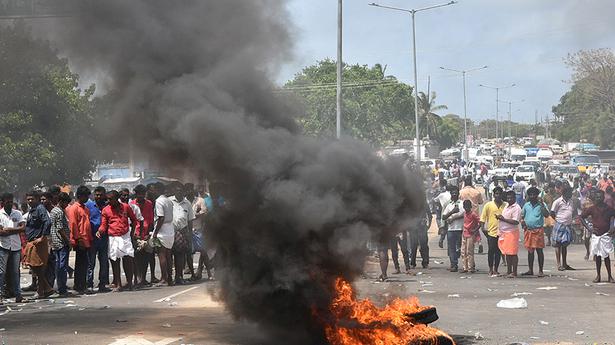
Preventive action against rape
The Hindu
Not just fast investigations and trials, but measures to ensure safety of women are required in Tamil Nadu
Four gang rapes in under three months, with the latest victim being murdered, have turned the spotlight on the need for enhancing safety for women and strengthening law and order in Tamil Nadu. Of greater concern is that the accused targeted the three survivors, who were with their male companions, in public spaces. In another case, a youth stalked a woman, forced his way into her home and allegedly raped her at knifepoint in the heart of Chennai.
The gang rapes in Vellore, Cuddalore, Namakkal and Rameswaram were preceded by a horrific incident of a woman in Virudhunagar being blackmailed and raped by four men and three juveniles over a period of seven months. In Vellore, a woman doctor from Bihar and a male colleague were hoodwinked into taking a ride at night in a share autorickshaw, with the accused pretending to be co-passengers. The two were robbed, the man beaten up and the doctor raped. The traumatised woman left for Bihar and filed an online complaint with the police. While the modus operandi in the Vellore case had traces of the ‘Nirbhaya’ case, the Virudhunagar incident brought back memories of the 2019 Pollachi case in which young women had been blackmailed and abused and which the DMK had made a campaign issue then.
The two cases, which surfaced when the Legislative Assembly was in session in March, caused great embarrassment to Chief Minister M.K. Stalin. Not long ago, as the Leader of the Opposition, he had questioned the Union government for adjudging Tamil Nadu, then ruled by the BJP’s ally AIADMK, the leading State in the Good Governance Index. He had asked how the Centre could rank Tamil Nadu first in ‘public security’ when there were incidents such as the Pollachi serial sexual abuse case. Therefore, he lost no time in declaring that the investigation and trial in the Virudhunagar case would be fast-tracked and monitored to fetch maximum punishment for the accused. He vowed that the investigation would not be (slow and shoddy) like the Pollachi case. He transferred the case to the Crime Branch-CID, which fast-tracked the investigation and filed a voluminous charge sheet against the accused. The accused persons in the doctor’s case too were arrested within days of the crime.
However, the administration’s quick actions did not prevent similar crimes from unfolding in Cuddalore, Namakkal and Rameswaram. In the last incident, a woman out on work at a prawn unit was robbed, raped and murdered by two migrant workers from Odisha, triggering massive protests. The rapists in all cases have been arrested. But it also had a different fallout in Rameswaram with the Municipal authorities seeking to profile details of guest workers selling pani puri and working in restaurants and construction sites, ostensibly linking crime with migrants.
Sexual crimes have evoked strong reactions from Tamil Nadu’s politicians in the past. Against the backdrop of the ‘Nirbhaya’ case, then Chief Minister Jayalalithaa had called for amending central laws to provide for punishments such as the death penalty and chemical castration for sexual offenders. After the Hathras rape, Mr. Stalin had promised to set up special courts to hear cases related to violence against women when his party is voted to power. The State already has Mahila Courts.
To the government’s credit, there was no attempt to cover up the rape cases. Mr. Stalin has made it a point to make surprise inspections at police stations whenever possible — something his predecessors had not done in decades. But what is needed is preventive action, strengthening security for women and a special focus on ‘visible policing’ with senior police officers playing a proactive role.
sureshkumar.d@thehindu.co.in











